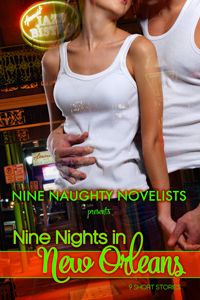
Unlike a lot of people, I’m not a true chocolate fanatic. I enjoy the taste, but I can take a single chocolate and leave the rest of the box without feeling particularly deprived. Potato chips, on the other hand, are another story. Put me near a bag and my self control promptly takes wing.
This rather labored explanation is meant to serve as the basis for an equally labored metaphor. Some books, you see, are like chocolate for me. I read a chocolate book over several days and then I may or may not get others by the same author. It’s pleasant reading, I like it, but it doesn’t really drive me to read nonstop. Other books, believe me, are more like potato chips. Once you start you just can’t put it down.

I first encountered the whole potato chip phenomenon when somebody gave me a box of Linda Howard’s old Harlequin romances from the eighties several years ago. I soon discovered I could polish one off in a few hours if I didn’t do anything else, and I usually didn’t want to do anything else while I was reading. After a couple of Linda Howard binges, I started rationing. I’d come home from work on Friday afternoon and curl up with a Linda Howard series romance. Three hours later, I’d probably be finished, but if I wasn’t, I’d go on reading after dinner or the next day until I was done. The whole process made Fridays something I looked forward to all week long.
After Linda Howard, I discovered Jayne Ann Krentz. Now Krentz’s books were a little longer, but I tore through them in the same way I’d torn through Howard’s. Weekend reading—I’d always check to make sure I had one on hand. Just like potato chips.
I don’t think it’s any coincidence that the writers who grabbed me this way (and I’d add Elizabeth Lowell to this list) were all old school. They’d come up through the ranks of series romances and they’d learned their trade well. Plots moved along at a very brisk pace. Characters were drawn in broad strokes and tended to fall into predictable patterns—the brooding alpha male, the headstrong, passionate woman. You didn’t spend a lot of time thinking when you read these books—you just plowed ahead.
By now, of course, all three of these writers have moved into Living Legend status, and they no longer write in the same way. They publish longer works and they seldom do more than one a year. Moreover, their characters are usually more complex, with more complete backstories. But the lessons you can learn from potato chip books are real. Stories matter. Characters may be stereotypical, but they’ve also got to be interesting. And most of all, once you’ve got the readers hooked, you’ll hold onto them. For those of us who write books in a series, that’s the Holy Grail, believe me.
Potato chip books. Betcha can’t read just one.
So who have I missed? What other potato chip authors would you add to this list?



















